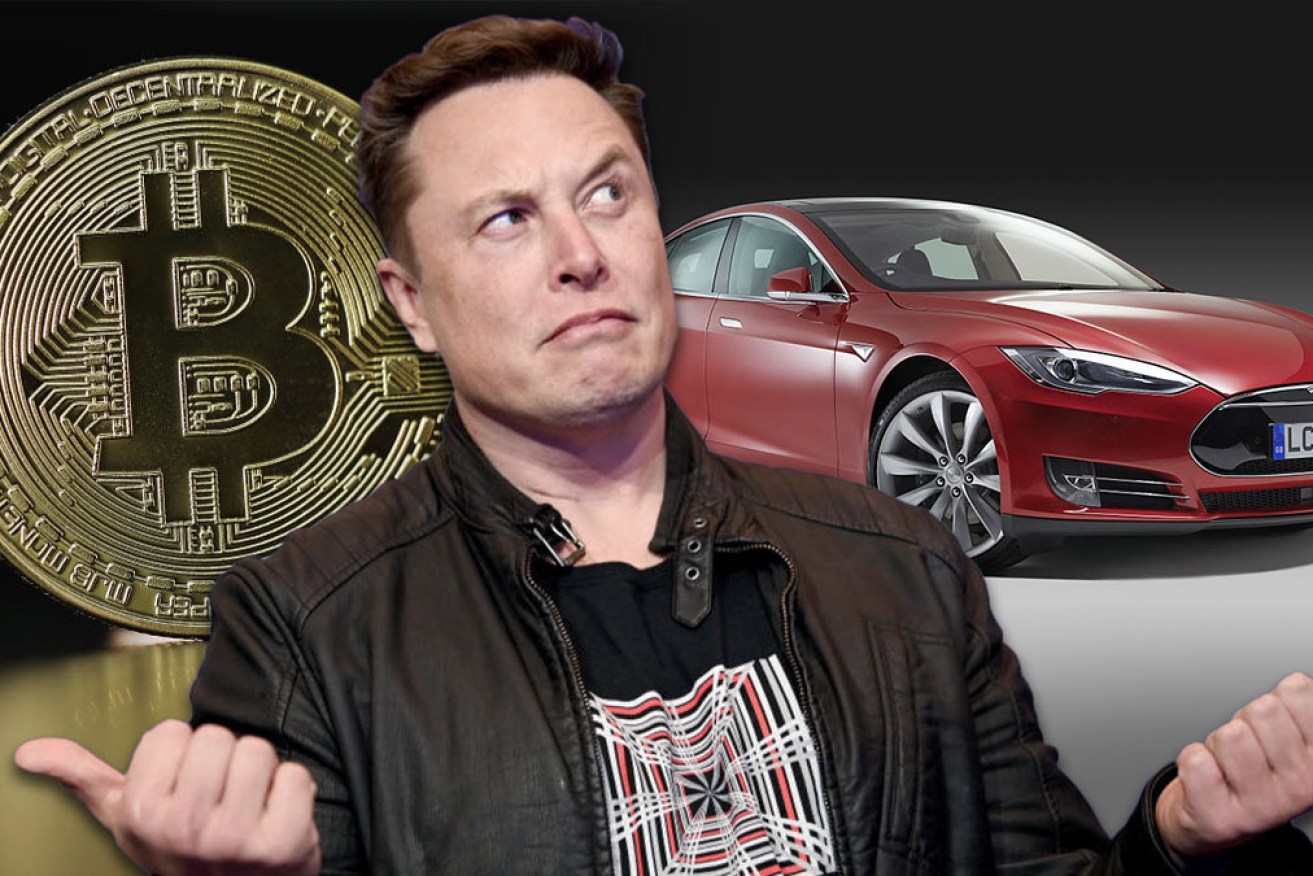Elon Musk serves up another reminder of Bitcoin’s major flaws


Elon Musk has once again demonstrated his ability to affect the price of Bitcoin with just one tweet. Photo: TND
If budding investors needed another reminder of the risks involved in buying Bitcoin, Elon Musk was there to provide it.
The tech billionaire on Thursday (Australia time) said Tesla would no longer let customers buy its electric cars with Bitcoin as the company was concerned about “the rapidly increasing use of fossil fuels for Bitcoin mining and transactions”.
Perhaps unsurprisingly – given Musk’s reputation as a cryptocurrency evangelical – Bitcoin crashed 7 per cent as a result.
Market watchers and sceptics said the fallout from the tweet was another reminder of Bitcoin’s volatility and should serve as a wake-up call to amateur investors wrestling with the ‘fear of missing out’. (Even Musk has warned fans not to “bet the farm” on it.)
The cryptocurrency has enjoyed a remarkable run of late with its price rising from about $US30,000 in January to roughly $US64,000 at the beginning of April.
But the major criticisms levelled at the cryptocurrency since its inception have yet to be resolved.
Tweet from @elonmusk
Firstly, Bitcoin has very few practical applications for the average consumer.
Among other things, it has allowed Venezuelans to bypass their corrupt government and helped overseas migrants save on transaction costs when sending money back to their families.
As a result, many economists argue the fundamental value of Bitcoin is “nothing” and it only rises in value because investors believe someone else will pay a higher price for it.
In other words: It’s a game of finding a bigger fool.
Secondly, because Bitcoin facilitates anonymous transactions it is often used to buy drugs and other illegal goods and services from the black market.
Australian academics estimate that between 2009 and 2017, 46 per cent of Bitcoin transactions were for illegal activities. And although that figure is expected to have fallen in step with the cryptocurrency’s growing popularity in recent years, it is still thought to be high.
Thirdly, Bitcoin is responsible for vast amounts of energy consumption.
Cambridge University estimates Bitcoin consumes about 149 terawatt hours of energy every year, which is more than Malaysia and Sweden.
This is because Bitcoin and most other cryptocurrencies use a system in which currency is created or “mined” using computers to solve mathematical puzzles – work that requires specialised hardware and lots of energy.

The price of Bitcoin has surged during the pandemic. Source: TradingView
University of Sydney professor Barney Tan, who specialises in fintech and strategic information systems, said taken together the main criticisms levelled at Bitcoin suggested its future was unsustainable.
He told The New Daily Musk’s comments were another reminder of the volatility and risk associated with investing in Bitcoin.
“Ultimately, we can all agree that … across the globe we’re becoming more conscious of societal and environmental issues,” Professor Tan said.
“And the fact that we have created this innovation that is just so bad for the environment, I just don’t see how it’s going to be sustainable in the long run.”
Professor Tan said although a small minority of the global population would continue to buy into Bitcoin as a get-rich-quick scheme, the digital currency in its current design would struggle to “permeate the mainstream”.
Rival coins emerge
Lecturer of Computing & Security at Edith Cowan University, Dr Mohiuddin Ahmed, agreed with Professor Tan.
Dr Ahmed said Bitcoin would continue to suffer extreme price volatility until governments regulated it and consumers could use it in everyday transactions.
He told The New Daily government regulation was also needed to limit Bitcoin’s carbon emissions and referred to an article he wrote for The Conversation about a new digital coin called Chia that claims to be more environmentally friendly.
But there’s a catch with that one, too.
Because Chia requires users “to show they have reserved a specific amount of hard drive space at a precise time”, prices for hard drives are already soaring across China and leading to shortages in Vietnam.








